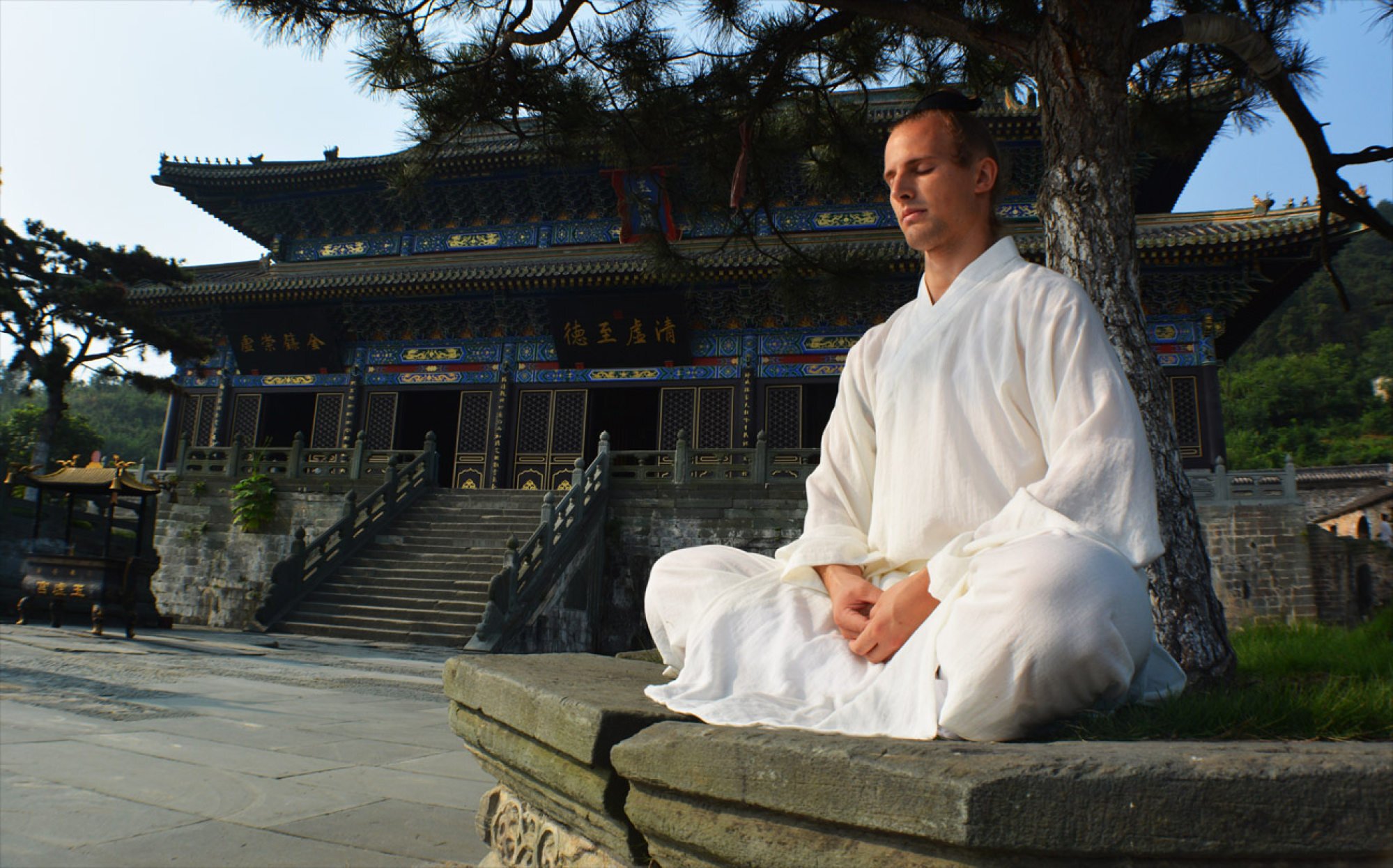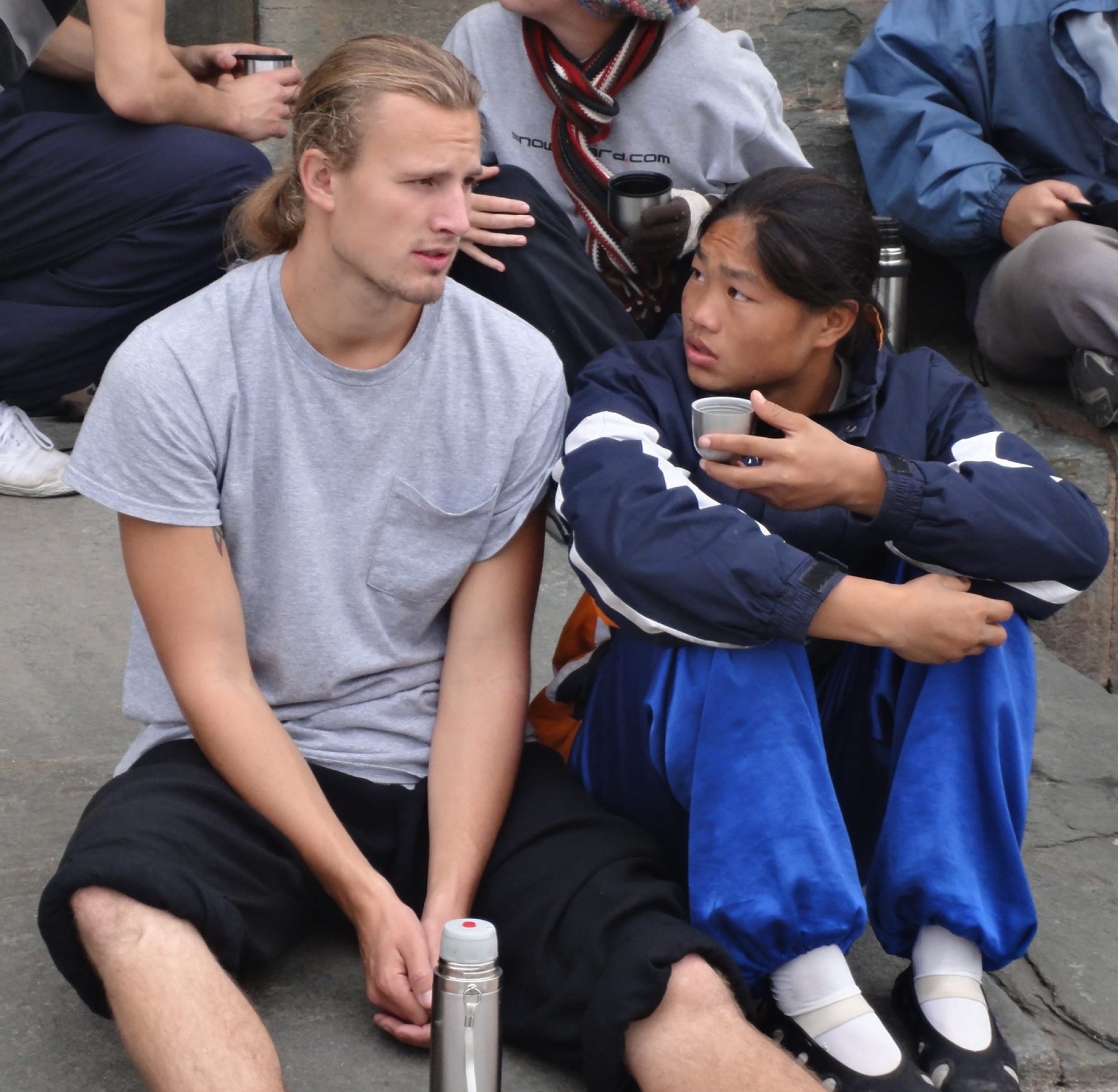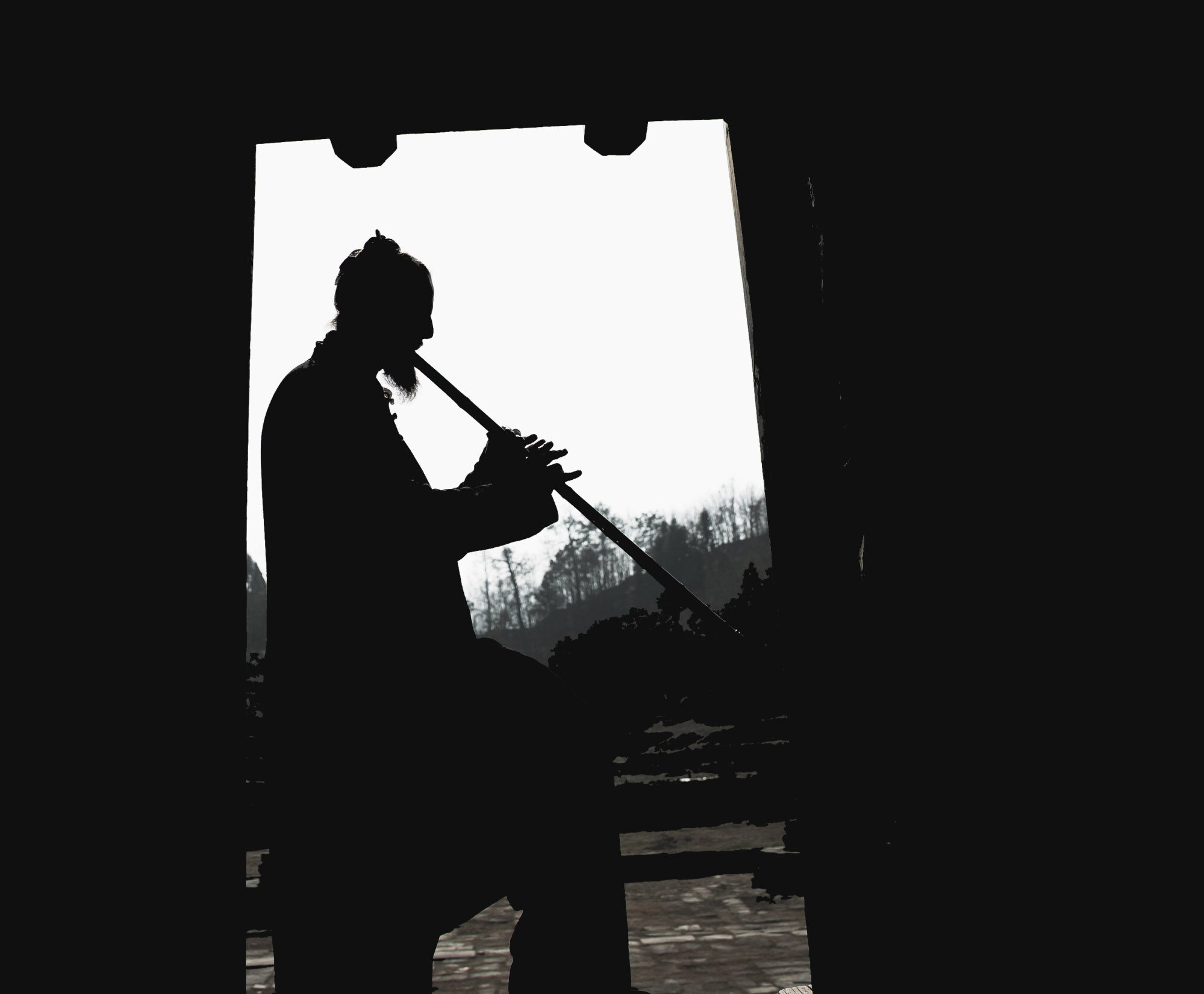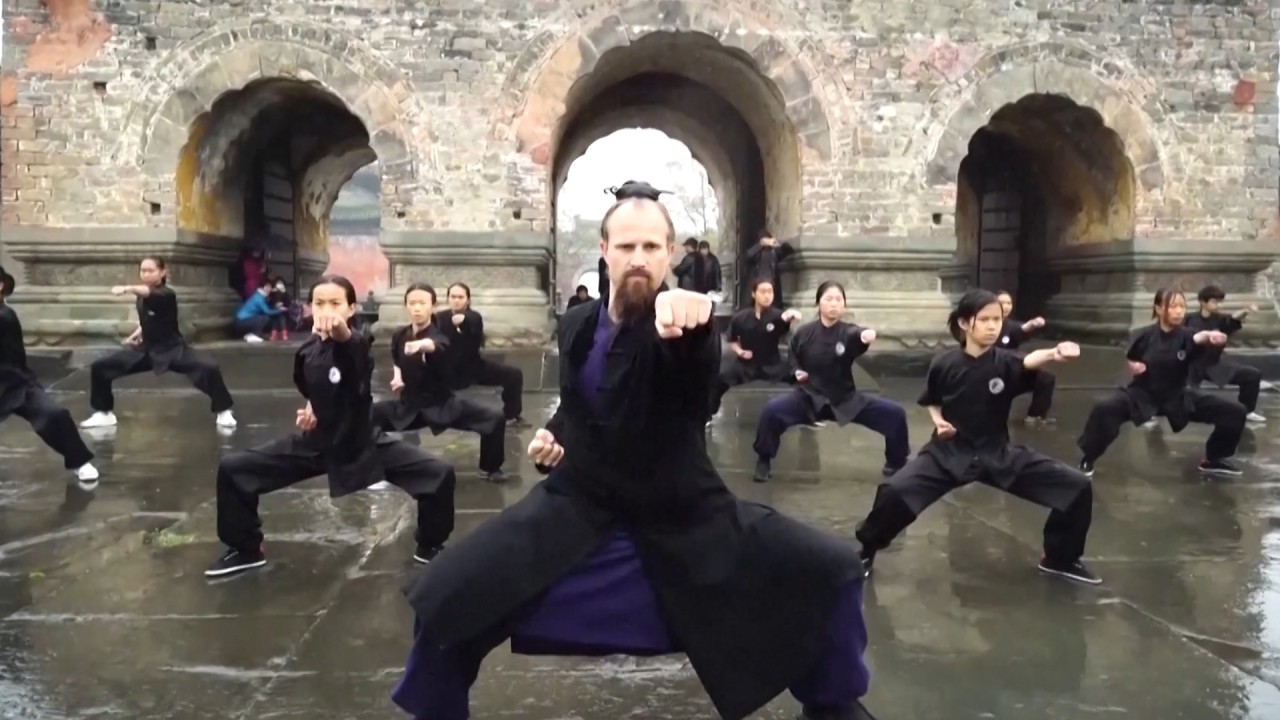
The kung fu way: Jake Pinnick’s journey from small-town America to China’s Wudang Mountains
- The 30-year-old left Kewanee in Illinois on a whim in 2010 to immerse himself in Chinese culture
- He now lives in the Wudang Mountains in Hubei province, with his wife and daughter, and hopes one day to bring Wudang martial arts to America
American Jake Pinnick hails from a small town in the state of Illinois called Kewanee.
It’s a perfect slice of Middle America, with fewer than 13,000 residents in a farming community about two and a half-hour’s drive west from Chicago.
Pinnick said when he told friends and family he wanted to go to the Wudang Daoist Traditional Kungfu Academy in China to train martial arts, the response was typical.
“I don’t think anyone really believed me,” said the 30-year-old. “No one really laughed at it, they were interested, but they didn’t really know what to ask, because it was so different. It’s not a usual thing to say, but it is pretty normal for kids to want to get out of a place like [Kewanee]. Most kids say something like they want to move to Hollywood and become an actor.”
“When I first thought about it, it was daydreaming for myself,” he said. “I was like ‘I’ll just send [the academy] an email just for fun’ and I didn’t really believe it myself either. I could travel, learn something new, challenge myself, get some discipline, find a way to be healthy, lots of different answers to questions I had.”

However, Pinnick’s trip to China was anything but smooth as a young 20-year-old who had never travelled outside the US. He ended up taking four flights, missing two of them, lost his luggage and ended up in Wuhan tired and dehydrated. From there he made his way to the Wudang Mountains via train, bus and taxi.
“It was intense. I didn’t speak any Chinese. It was quite the adventure just getting there.”
Once he found himself at the academy, Pinnick said acclimatising was softened by other foreigners who were in the area and a part of the school. They started teaching him Mandarin, showed him where to get groceries and all the best noodle shops. Pinnick said getting used to the way of life was surprisingly easy given the peaceful and serene nature to it.
The Wudang Mountains are a famous geographical range in the northwest part of Hubei province known for Taoist temples, monasteries and as the birthplace of tai chi. The area also has a deep history with traditional martial arts, and kung fu in particular, the most famous being the Shaolin kung fu, which is still regularly referenced in popular culture.

“The culture shock wasn’t that bad. Surprisingly, I find I have more of that going back to America now … learning the language did take some time, but everyone around the school was familiar with foreigners so we had a lot of fun speaking broken English and Chinese back and forth at the start.”
After he settled into a routine, Pinnick set about immersing himself in Chinese culture, including martial arts training. He also gravitated towards Daoism, a philosophical tradition most well known for the yin-yang symbol and the idea of living in harmony with the universe.
Pinnick said he had to go home after the first six months and instantly wanted to return to China, feeling if it had now become his home more than America, and he had begun a process of rewriting himself as a person overseas.

“Everything fit and it felt like something was really challenging and helped me grow quite a lot really fast. And as cliché as it is, it helps you find yourself … I feel like this is a typical response. You can feel like you inherit your life, especially in the Midwest in America, you can inherit your belief structure, you can inherit your job, you can inherit your house, from material to metaphysical to philosophical to religious, it almost feels like copy and paste. And, for me, I wanted to see what would happen without that buffer.”
Now he has a wife, whom he met in China, and a daughter, and said his life now revolves around training, teaching and studying. He graduated officially from the academy in 2014 and still helps teach there, a practitioner of the Wudang Wushu of the San Feng lineage, while also holding his own classes as well.
Pinnick said the goal is to one day return to the US and teach what he has learned, opening a school of his own. Looking back on his amazing journey, Pinnick said he has grown leaps and bounds from a small-town American kid who had a daydream he could not shake.
“Back then I had a phrase that kind of shot me into the path of coming here and that was to ask myself, ‘What if?’ And I would play these stories out in my head, and then I thought I should stop asking that question because it’s making me indecisive in life, and I pushed myself to ask the question, ‘What if now?’”


